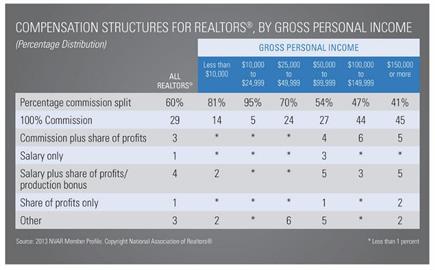Diligent Business Practices Can Save Time, Money … and Sanity
No one knows better than an accountant just how nerve-wracking it can be to tackle tax filings, especially for the self-employed Realtor®— seasoned or otherwise. The key is to be organized and meticulous. As an accountant firm, we recommend some basic suggestions to help ensure that your return is prepared efficiently, advantageously and cost-effectively:
RECORD-KEEPING IS THE RULE
Establish separate bank accounts, credit cards and bookkeeping for your business. Keep a strict separation between your business and personal accounts. We generally recommend three bank accounts: one for business income/expenses, one for depositing a portion of each commission check for tax payments, and one personal account for non-business expenses.
You can “pay yourself” from your business account as necessary. This keeps things clean and clear with regard to business-related income and expenses, and segregates the money you’ve reserved for taxes so it is there when you need it.
Set aside 30 – 50 percent of each commission check for the IRS (the more, the better). Self-employed individuals should be prepared for the self-employment tax hit, and also for quarterly estimated payments to the IRS and Virginia. This means carefully tracking income and expenses – no problem if you’ve followed our suggestions above!
‘DON'T-MISS' DEDUCTIONS
• Mileage. As a Realtor®, you live and die by your car, and your business-related use is tax-deductible. It’s easiest to take the standard mileage deduction ($0.56 per mile in 2014), just be sure to log the mileage from every trip; however, your accountant might recommend doing a full depreciation instead if your vehicle is new. Either way, keep all records and receipts related to your vehicle.
• Advertising, professional liability insurance and continuing education. These expenses are business-related and, therefore, deductible.
• Home office. If you have a home office, you may be able to take this deduction. It depends on how that room is used. Does it double as your spouse’s hobby room? Do your kids play video games there? Only home offices used exclusively for business purposes qualify for that deduction. Fortunately, the IRS is offering a new simplified home office deduction option: rather than calculate the deduction based on square footage and expense percentages (which you may continue to do if you prefer), you can now take a standard deduction of $5 per square foot (not to exceed $1,500) and avoid the more complicated calculations required for the regular deduction method.
• Meals and Entertainment. You can write off 50 percent of business-related meals and entertainment. Keep the receipt, document the purpose of the meal or expenditure, and make sure that it was in face for a bona fide business purpose.
• Health Insurance. If you are not eligible for coverage under a spouse’s plan, then you may deduct your premiums. Unfortunately, if you are eligible under a spouse’s plan but choose to pay for your own coverage instead, you cannot deduct your premiums.
• Cell Phones and Computers. If you don’t have a dedicated business cell phone, then you can estimate the percentage of time that you use your personal cell phone for business purposes and take a deduction. The same rule applies for a personal computer.

RENTAL INCOME
Material participation in any rental real estate activities is treated by the IRS as a non-passive activity. For those agents who qualify as a real estate professional according to IRS guidelines, rental income is not subject to self-employment tax; therefore, any losses from those rental activities may be applied against other non-passive income. The next time you meet with your accountant, plan to discuss any rental real estate activities.
No amount of advice can take the place of a knowledgeable accountant. Be sure to find one who will take the time to understand the ins and outs of your particular business activities.
The ultimate takeaway: be diligent. Keep separate accounts, save receipts and invoices, maintain careful mileage logs and run yourself like a business. That way if the IRS comes a-knocking, you are prepared!
Are You a Business? If So, ‘Walk the Walk’ And Make It Official!
Though self-employed and home-based, you are a business and should operate as such. If you have established yourself as an LLC or other corporate entity, you must register with the Commonwealth of Virginia State Corporation Commission. Both sole proprietorships and corporate entities should register with the Virginia Department of Taxation, obtain an Employer Identification Number (or EIN) from the IRS, and secure a business license from the appropriate city or county. You will also need to file annual business personal property tax returns with your city or county. Keep in mind that if you use your car extensively for business, you may lose the option to apply for car tax relief from your county’s personal property tax assessment.
Joseph Aiken is an Accountant and Carol Apelt is Director of Business Services at Aiken and Company, PC, CPAs in Fairfax, Virginia.